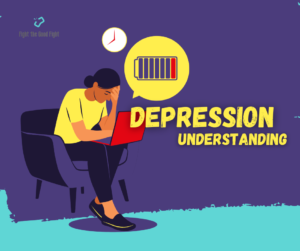Bipolar disorder, formerly known as manic-depressive illness, is a mental health condition characterized by extreme shifts in mood, energy levels, and activity levels. Individuals with bipolar disorder experience episodes of mania (elevated mood and excessive energy) and depression (profound sadness and loss of interest). These mood episodes can significantly impact daily functioning, relationships, and overall well-being. While bipolar disorder is a lifelong condition, it can be effectively managed with a combination of medication, therapy, lifestyle changes, and support. Let’s explore what bipolar disorder is and how individuals can overcome its challenges.
Understanding Bipolar Disorder:
Bipolar disorder involves distinct periods of elevated mood (mania) and depressive episodes. The two main types of bipolar disorder are:
Bipolar I Disorder: Individuals with bipolar I disorder experience manic episodes that last at least seven days or are so severe that immediate medical attention is necessary. Depressive episodes typically last for about two weeks.
Bipolar II Disorder: Bipolar II disorder involves less severe manic episodes, known as hypomania, that last for at least four days. Depressive episodes are similar to those in bipolar I disorder and tend to be more frequent.
Overcoming Bipolar Disorder:
Seek Professional Help: If you suspect you have bipolar disorder, it is crucial to seek professional help from a mental health provider. A psychiatrist or a psychologist specializing in mood disorders can accurately diagnose bipolar disorder and develop an appropriate treatment plan. They may recommend medication, therapy, or a combination of both.
Medication Management: Medication is often a vital component of managing bipolar disorder. Mood stabilizers, such as lithium, anticonvulsants, and atypical antipsychotics, are commonly prescribed to control mood swings. It is essential to work closely with a psychiatrist to find the right medication and dosage that effectively manages symptoms with minimal side effects.
Psychotherapy: Psychotherapy, particularly Cognitive Behavioral Therapy (CBT) and Interpersonal and Social Rhythm Therapy (IPSRT), can be beneficial for individuals with bipolar disorder. CBT helps individuals identify and change negative thought patterns and behaviors that contribute to mood episodes. IPSRT focuses on stabilizing daily routines and sleep patterns, which can help regulate mood.
Create a Support System: Building a strong support system is crucial for individuals with bipolar disorder. Reach out to family, friends, or support groups specializing in mood disorders. Sharing experiences, receiving empathy, and practical advice can provide a sense of connection and reduce feelings of isolation.
Practice Self-Care: Self-care plays a significant role in managing bipolar disorder. It involves adopting healthy lifestyle habits, such as regular exercise, sufficient sleep, a balanced diet, and stress reduction techniques. Engaging in activities that bring joy, relaxation, and fulfillment can also help stabilize mood and improve overall well-being.
Monitor and Manage Triggers: Identifying triggers that may contribute to mood episodes is essential. Common triggers include stress, sleep disturbances, substance abuse, and major life changes. By recognizing and managing these triggers, individuals can minimize the risk of manic or depressive episodes.
Establish Routine: Maintaining a consistent daily routine can help stabilize mood and provide a sense of stability. Establish regular sleeping patterns, meal times, and activities. Creating a structured environment can promote better self-regulation and prevent mood fluctuations.
Educate Yourself: Educating yourself about bipolar disorder is empowering. Understand the symptoms, triggers, and treatment options associated with the condition. Knowledge enables you to actively participate in your treatment, make informed decisions, and recognize the early signs of mood episodes.
Monitor Medication: It is essential to adhere to the prescribed medication regimen and communicate regularly with your psychiatrist about any side effects or concerns. Keep track of your mood changes, sleep patterns, and medication response to provide valuable information for adjusting treatment as needed.
Stay Committed to Treatment: Overcoming bipolar disorder requires long-term commitment to treatment and self-care. It is important to stay engaged in therapy, attend regular psychiatric appointments, take medication as prescribed, and maintain a healthy lifestyle. Consistency and perseverance are key to managing bipolar disorder effectively.
Remember, bipolar disorder is a chronic condition that requires ongoing management. Recovery is a journey, and everyone’s experience is unique. With proper treatment, support, and self-care, individuals with bipolar disorder can lead fulfilling and productive lives, effectively managing the challenges and achieving stability and well-being.



